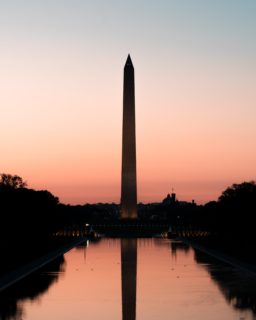 The ongoing saga of DC’s controversial Ban on Non-Compete Agreements Amendment Act of 2020 (the “Act”) logged another chapter last week when the DC Council passed a further amendment delaying the effective date of the Act from April 1, 2022, until October 1, 2022. The Act, which was originally passed in December 2020, would prohibit employers from utilizing non-compete agreements, a statutory ban which has been adopted in certain other states, but would also prohibit employers from utilizing anti-moonlighting provisions or other “duty of loyalty” policies for DC employees. This latter prohibition would be a first-of-its-kind ban, and would prohibit employer policies which are generally viewed as both reasonable and non-controversial, even in states that have taken a negative view toward post-employment restrictive covenants.
The ongoing saga of DC’s controversial Ban on Non-Compete Agreements Amendment Act of 2020 (the “Act”) logged another chapter last week when the DC Council passed a further amendment delaying the effective date of the Act from April 1, 2022, until October 1, 2022. The Act, which was originally passed in December 2020, would prohibit employers from utilizing non-compete agreements, a statutory ban which has been adopted in certain other states, but would also prohibit employers from utilizing anti-moonlighting provisions or other “duty of loyalty” policies for DC employees. This latter prohibition would be a first-of-its-kind ban, and would prohibit employer policies which are generally viewed as both reasonable and non-controversial, even in states that have taken a negative view toward post-employment restrictive covenants.
As readers of this blog are aware, the scope of the Act is such that, if the Act goes into effect, and an employer fires its employee upon learning that the employee is working for its direct competitor, the employer would be subject to liability for firing that employee, as such would constitute prohibited “retaliation” under the Act. The Act would even create liability for inclusion of a provision prohibiting such work for direct competitors in an employment agreement, even if the employer never penalizes an employee for a violation. As the DC Council seems to recognize at this point, the Act is going to create a nightmare for DC employers once it becomes effective.
Seemingly, the DC Council understood and recognized the limitations on the Act as early as last May 2021, when Councilmember Silverman introduced the Non-Compete Conflict of Interest Clarification Amendment Act of 2021. It is notable that Councilmember Silverman was one of a group of eight that originally proposed the Act. Moreover, during a public hearing in July 2021, Councilmember Brooke Pinto (another initial proponent of the Act) identified additional proposed amendments to the Act, including limiting the application of the Act to certain key employees.
But despite those comments and a suggested walk-back of certain aspects of the Act in the summer of 2021, the DC Council has not taken further steps to clarify, limit, or amend the Act, except for now delaying the effective date of the Act a second time. With now another half year ahead of it, perhaps the DC Council will have the time it needs to amend the Act to avoid what will certainly create a nightmare of application and enforcement issues when it eventually becomes effective. We will continue to monitor the situation as it unfolds.